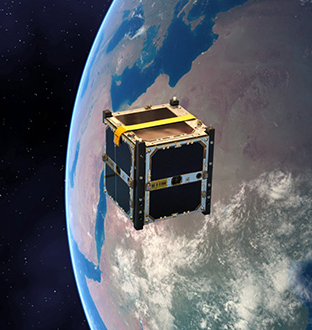Satellite twins launched
 Australian authorities have launched a high-tech set of tiny satellites.
Australian authorities have launched a high-tech set of tiny satellites.
UNSW Canberra Space’s M2 CubeSat satellites successfully launched from New Zealand this week.
The M2 mission, a collaboration between UNSW Canberra Space and the Royal Australian Air Force (RAAF), brings together emerging technologies that deliver advanced capabilities in Earth observation, maritime surveillance, and satellite communications.
The M2 system features formation flying, where the craft is able to split into two separate satellites (M2- A and M2-B) and fly in sequence, enabling significant mission flexibility.
The data captured by M2 can inform maritime surveillance, weather observations and low-orbit satellite traffic. This information is processed through advanced in-orbit artificial intelligence, on a platform reconfigurable throughout the mission.
Air Vice-Marshal Cath Roberts, Head of Air Force Capability, says the M2 mission is incredibly exciting as it is the first time the RAAF has used formation flying in CubeSats.
“The two satellites will be able to communicate with each other, as well as ground stations back here on Earth, giving better quality data, with greater detail and less lag time – all fundamentally important for Australia’s defence,” Air Vice-Marshal Cath Roberts said.
UNSW Canberra Space’s Spacecraft Project Lead Andrin Tomaschett said the M2 mission was almost entirely designed and built in Australia.
The mission is supported by a domestic supply chain of some 30 companies. This, combined with three spin-off companies from UNSW Canberra Space to date, is an indicator of the significant impact that targeted investment in the research sector can have on building the nation’s space industry.
“The M2 mission is our most complex yet and it’s great to be launching again with Rocket Lab,” Mr Tomaschett said.
“M2 comprises two connected spacecraft that will separate on-orbit to engage in formation flying, followed by a multitude of radio frequency, imaging and laser experiments.”
The satellites were launched as part of Rocket Lab’s ‘They Go Up So Fast’ initiative.








 Print
Print